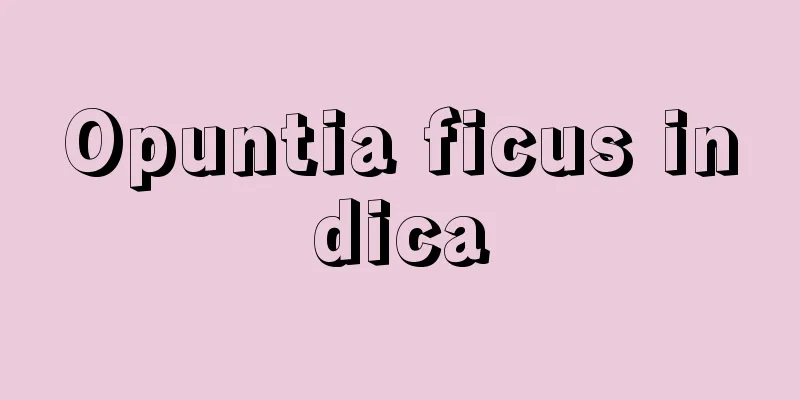Fiction (English spelling)

|
Treating something contrary to fact as if it were a fact. Unlike "myths" where no one is aware that they are contrary to fact, or "lies" where the other person is made unaware of the fact, fiction is characterized by the fact that everyone knows that it is contrary to fact. By using fiction, we can simplify our thinking. Assuming that a certain object (rigid body) has no friction, or that the movement of a certain object has no air resistance, are also examples of fictional thinking. Fictions are often used in jurisprudence, but in this case they are divided into theoretical fictions and practical fictions. The former involves treating corporations as if they were human beings and judges as if they were people without political bias, while the latter involves treating things that violate legal principles and provisions as not violating them. The latter are further classified into legislative fictions and fictions in the application of law. Legislative fictions are cases where different things are treated the same, such as treating an adopted child as a natural child (Civil Code, Article 809), electricity as property (Penal Code, Article 245), and a ship as real property under the Compulsory Execution Act (Civil Execution Act, Article 112). Fictions in the application of law are cases where the person applying the law treats something that does not meet the requirements of a provision as if it does, or treats something that does meet the requirements as if it does not. This is a form of "rebellion" by those who apply the law against the law-makers, but as the British legal historian Sir Henry Sumner Maine (1822-88) emphasized, it can also play a positive role in adapting laws that are no longer applicable to the times to a new era. [Ryuichi Nagao] "The Benefits of Lying" by Gentaro Suehiro (1954, Nippon Hyoronsha) [Reference item] |Source: Shogakukan Encyclopedia Nipponica About Encyclopedia Nipponica Information | Legend |
|
事実に反することを事実であるかのように扱うこと。事実に反することがだれにも自覚されていない「神話」や、相手に自覚させないようにする「嘘(うそ)」と異なり、だれもが、それが事実に反することを知っている点に特色がある。擬制を用いることによって、思考を単純化することができる。ある物体(剛体)を摩擦のないものと仮定したり、ある物体の運動を空気抵抗のないものと仮定したりするのも擬制による思考である。 法学においても、しばしば擬制が用いられるが、この場合理論上の擬制と実践上の擬制とに区別される。前者は、法人を人間であるかのように考えたり、裁判官を政治的偏向をもたない人間であるかのように考えたりするものであり、後者は、法原則や条文に反するものを反しないように扱うものである。後者はさらに、立法上の擬制と法適用上の擬制とに分類される。立法上の擬制とは、養子を実子とみなす(民法809条)、電気を財物とみなす(刑法245条)、船舶を強制執行法上不動産とみなす(民事執行法112条)、というように、異なったものを同一に扱う場合である。法適用上の擬制とは、法適用者が、条文の要件にあたらないものをあたるかのように、あるいは、あたるものをあたらないかのように扱う場合である。これは法適用者の立法者に対する「造反」であるが、イギリスの法史学者メーンSir Henry Sumner Maine(1822―88)が強調したように、時代に適応できなくなった法規を新たな時代に適用させる積極的役割を果たす場合もある。 [長尾龍一] 『末広厳太郎著『嘘の効用』(1954・日本評論社)』 [参照項目] |出典 小学館 日本大百科全書(ニッポニカ)日本大百科全書(ニッポニカ)について 情報 | 凡例 |
Recommend
Circular roof tile
...The clue to understanding the evolution of til...
Mauna Loa (Plant) (English spelling) MaunaLoa
...The pure white bracts are 8-10cm long, long an...
"Biography of the Enshrinement of the Two Imperial Deities of Ise"
…Although each has a long title, it is a short wo...
ASM - Air to Surface Missile
Air-to-surface (ship) missile. There are various t...
Managed Price Inflation
… In the 1970s, it was said that controlled price...
Murder of the King - Ousatsugai
...In the broad sense, it refers to any illegal k...
Rhododendron metternichii (English spelling) Rhododendron metternichii
…[Masaaki Kunishige]. … *Some of the terms mentio...
Exorcism
...The doctrine that the devil is a personal expr...
South Africa – Southern Africa
◎Official name: Republic of South Africa. ◎Area: 1...
unloader
…Bridge cranes are widely used in outdoor materia...
Lake Ikeda - Ikedako
Located in the southeastern part of the Satsuma P...
Wuyi Mountains
A mountain range that runs from northeast to south...
Water chickweed - Water chickweed
An annual plant of the family Lythrum mallid (APG...
Ubaid culture - Ubaid culture
An ancient culture of Mesopotamia. Named after the...
Honjo Mutsuo
Novelist. Born in Hokkaido. His father, a samurai...









